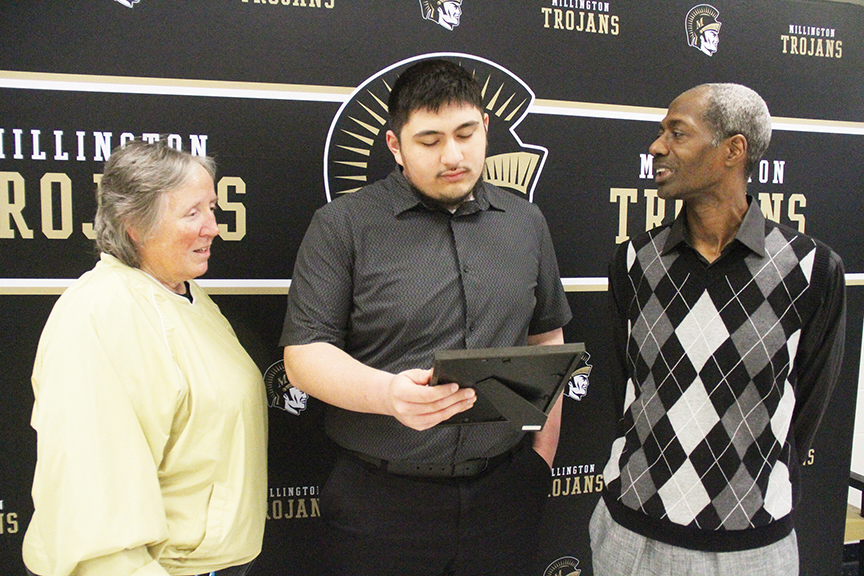By David Peel
 Ever guess wrongly? You are not the first, nor the last. Consider these predictions: “Everything that can be invented has been invented.” — Charles H. Duell, Commissioner, U.S. Office of Patents, 1899. “The concept is interesting and well-formed, but in order to earn better than a ‘C’, the idea must be feasible.” — A Yale professor response to Fred Smith’s paper proposing overnight delivery service. Smith later founded FedEx here in Memphis. “I think there is a world market for maybe five computers.” — Thomas Watson, IBM, 1943. “This ‘telephone’ has too many shortcomings to be seriously considered as a means of communication. The device is inherently of no value to us.” — Western Union internal memo, 1876. “But what…is it good for?” — Engineer of IBM, 1968, commenting on the microchip. “There is no reason anyone would want a computer in their home.” — Ken Olson, president, chairman and founder of Digital Equipment Corp., 1977. “We don’t like their sound, and guitar music is on the way out.” — Decca Recording Co. rejecting a group you may have heard of, called the Beatles, in 1962. “The Americans have need of the telephone, but we do not. We have plenty of messenger boys.” — Sir William Preece, British Post Office, 1876. “The wireless music box has no imaginable commercial value. Who would pay for a message sent to nobody in particular?” — Response to ideas of radio in the 1920s. “While theoretically and technically ‘television’ may be feasible, commercially and financially it is an impossibility.” — Lee DeForest, inventor. “With over 50 foreign cars already on sale here, the Japanese auto industry isn’t likely to carve out a big slice of the U.S. market.” — Business Week, August 2, 1968. “Radio has no future. Heavier-than-air flying machines are impossible. X-rays will prove to be a hoax.” — British scientists, 1899. “Ours has been the first, and doubtless to be the last, to visit this profitless locality.” — Lt. Joseph Ives, after visiting the remote Grand Canyon in 1861. “Drill for oil? You mean drill into the ground to try and find oil? You’re crazy.” — Workers whom Edwin L. Drake tried to enlist to his project to drill for oil in 1859. “Stocks have reached what looks like a permanently high plateau.” — Irving Fisher, Professor of Economics, Yale University, 1929, soon before the Great Depression. “There will never be a bigger plane built.” — A Boeing engineer, after the first flight of the 247, a twin-engine plane that holds ten people. Peel seeks justice for those injured in car accidents, work place incidents, medical malpractice, and nursing homes. He often addresses churches, clubs and groups without charge. Peel may be reached through PeelLawFirm.com wherein other articles may be accessed.
Ever guess wrongly? You are not the first, nor the last. Consider these predictions: “Everything that can be invented has been invented.” — Charles H. Duell, Commissioner, U.S. Office of Patents, 1899. “The concept is interesting and well-formed, but in order to earn better than a ‘C’, the idea must be feasible.” — A Yale professor response to Fred Smith’s paper proposing overnight delivery service. Smith later founded FedEx here in Memphis. “I think there is a world market for maybe five computers.” — Thomas Watson, IBM, 1943. “This ‘telephone’ has too many shortcomings to be seriously considered as a means of communication. The device is inherently of no value to us.” — Western Union internal memo, 1876. “But what…is it good for?” — Engineer of IBM, 1968, commenting on the microchip. “There is no reason anyone would want a computer in their home.” — Ken Olson, president, chairman and founder of Digital Equipment Corp., 1977. “We don’t like their sound, and guitar music is on the way out.” — Decca Recording Co. rejecting a group you may have heard of, called the Beatles, in 1962. “The Americans have need of the telephone, but we do not. We have plenty of messenger boys.” — Sir William Preece, British Post Office, 1876. “The wireless music box has no imaginable commercial value. Who would pay for a message sent to nobody in particular?” — Response to ideas of radio in the 1920s. “While theoretically and technically ‘television’ may be feasible, commercially and financially it is an impossibility.” — Lee DeForest, inventor. “With over 50 foreign cars already on sale here, the Japanese auto industry isn’t likely to carve out a big slice of the U.S. market.” — Business Week, August 2, 1968. “Radio has no future. Heavier-than-air flying machines are impossible. X-rays will prove to be a hoax.” — British scientists, 1899. “Ours has been the first, and doubtless to be the last, to visit this profitless locality.” — Lt. Joseph Ives, after visiting the remote Grand Canyon in 1861. “Drill for oil? You mean drill into the ground to try and find oil? You’re crazy.” — Workers whom Edwin L. Drake tried to enlist to his project to drill for oil in 1859. “Stocks have reached what looks like a permanently high plateau.” — Irving Fisher, Professor of Economics, Yale University, 1929, soon before the Great Depression. “There will never be a bigger plane built.” — A Boeing engineer, after the first flight of the 247, a twin-engine plane that holds ten people. Peel seeks justice for those injured in car accidents, work place incidents, medical malpractice, and nursing homes. He often addresses churches, clubs and groups without charge. Peel may be reached through PeelLawFirm.com wherein other articles may be accessed.
— What do you think? Send Letters to the Editor to [email protected].




